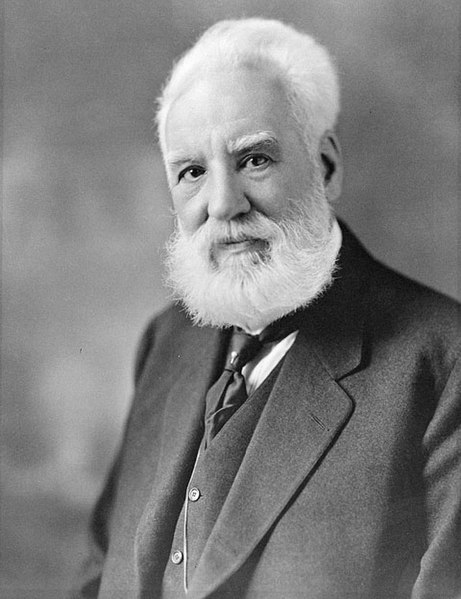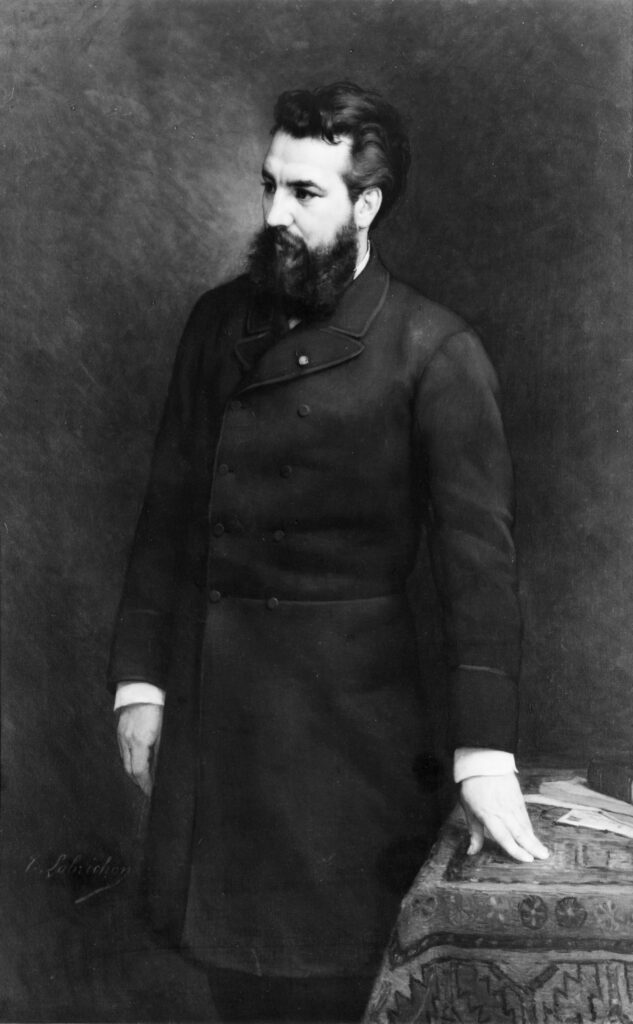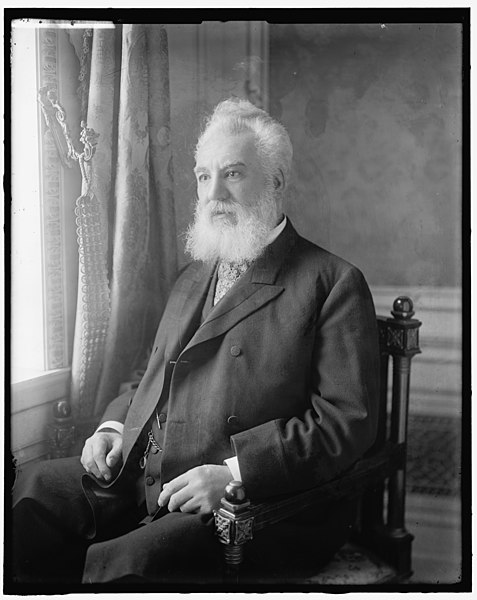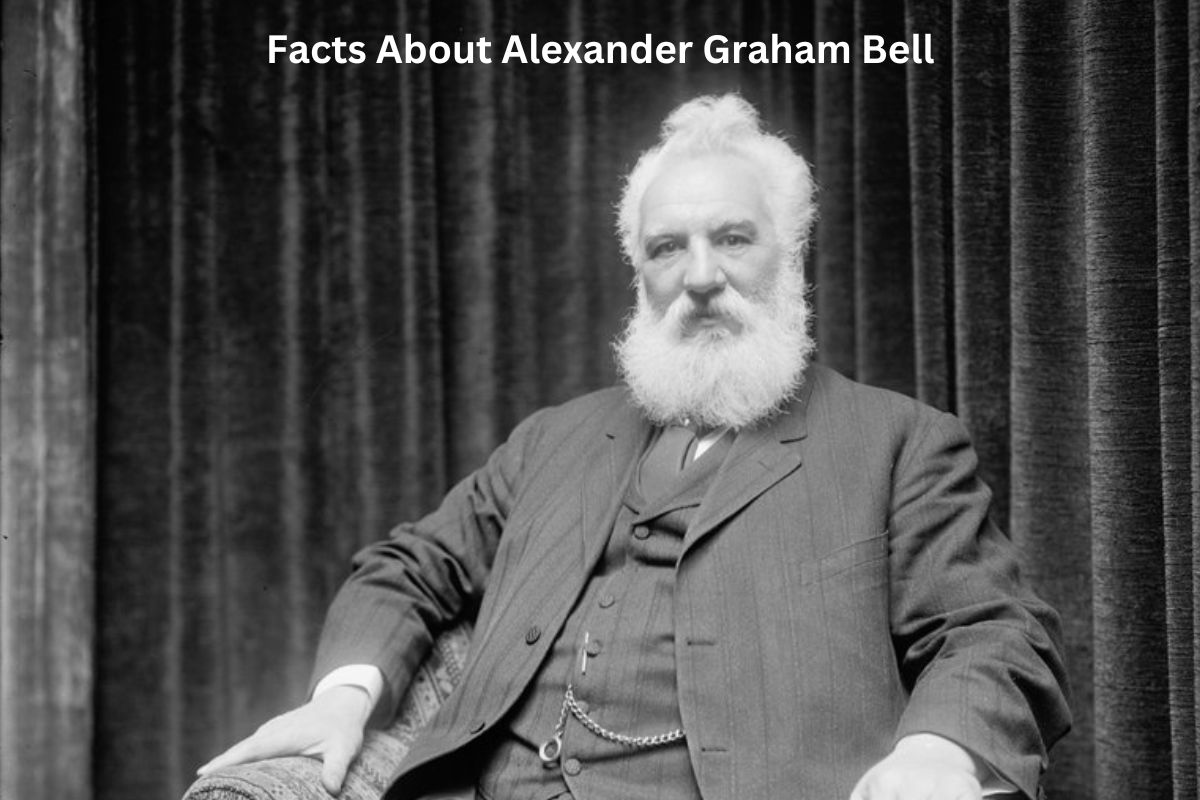Alexander Graham Bell, born in Edinburgh, Scotland, on March 3, 1847, was a renowned inventor, scientist, and educator whose groundbreaking invention of the telephone revolutionized global communication.
Beyond the telephone, Bell’s lifelong commitment to improving communication, particularly for the deaf, left an enduring legacy.
This brief overview highlights some key aspects of his remarkable life and contributions.
Alexander Graham Bell Facts
1. Born on March 3, 1847, in Edinburgh, Scotland
Alexander Graham Bell was born on March 3, 1847, in Edinburgh, Scotland. He was born into a family that was steeped in the pursuit of knowledge and education.
Also Read: Alexander Graham Bell Timeline
His father, Alexander Melville Bell, was a renowned phonetician and teacher of speech, while his mother, Eliza Grace Symonds Bell, was deaf. Bell’s family environment exposed him to a deep appreciation for language, communication, and scientific inquiry from a young age.

2. Came from a family of educators
The Bell family was heavily involved in the study of speech and communication.
His father, Alexander Melville Bell, was a respected phonetician who developed a system of visible speech, which was used to teach the deaf to speak. His father’s work laid the foundation for Bell’s own interest in speech and communication.
Additionally, Bell’s mother, Eliza Grace Symonds Bell, was deaf from an early age, which had a profound impact on Bell’s life and work. Her struggle with deafness inspired Bell to develop various communication devices for the deaf, including the early version of the telephone.
3. Worked extensively with the deaf community
Due to his mother’s deafness and his father’s expertise in teaching speech to the deaf, Bell was immersed in the world of deaf education from a young age. This experience deeply influenced his career and inventions.
Also Read: Accomplishments of Alexander Graham Bell
He became a teacher of the deaf and dedicated a significant portion of his life to improving communication tools and methods for individuals with hearing impairments.
His work in this area included the development of systems like visible speech, which was designed to help deaf individuals learn to speak more effectively. His commitment to improving the lives of those with hearing challenges remained a central theme throughout his career.
4. Invented the telephone in 1876
Alexander Graham Bell’s most famous invention is the telephone. On March 7, 1876, he was granted a patent for the telephone, a device that allowed for the transmission of sound over long distances through electrical signals.
Bell’s breakthrough came after years of experimenting with various devices and ideas for transmitting sound.
The first successful telephone call was made by Bell to his assistant, Thomas Watson, who was in another room, with the famous words, “Mr. Watson, come here, I want to see you.” This marked a pivotal moment in the history of communication technology.

5. Held over 18 patents for various inventions
In addition to the telephone, Alexander Graham Bell held more than 18 patents for various inventions. Some of his notable inventions and innovations include:
- Photophone: Bell invented the photophone in 1880, a device that transmitted sound on a beam of light. This early optical communication device was an important precursor to modern fiber-optic communication.
- Metal Detector: Bell developed an early version of the metal detector in an attempt to locate the bullet that had wounded President James A. Garfield in 1881.
- Visible Speech: Bell worked on a system called “visible speech,” which aimed to represent speech sounds visually. This system was intended to assist individuals with speech difficulties in learning to articulate sounds correctly.
6. Founded the Bell Telephone Company in 1877
In 1877, Alexander Graham Bell, along with financial backers including Gardiner Hubbard and Thomas Sanders, founded the Bell Telephone Company. This company played a pivotal role in the development and commercialization of the telephone.
It later evolved into the American Telephone and Telegraph Company (AT&T), becoming a major player in the telecommunications industry.
Bell’s invention of the telephone and the subsequent formation of this company had a profound impact on how people communicated and laid the groundwork for the modern telecommunications industry that we have today.
Bell’s work also contributed to the development of the telephone network, which connected people across long distances and facilitated global communication.
7. Author and educator on communication and phonetics
Alexander Graham Bell was not only an inventor but also an accomplished educator and author. His work on speech and communication led him to write several books and articles on the subject. He was a passionate advocate for improving communication skills, particularly for the deaf.
One of his notable publications was “Visible Speech: The Science of Universal Alphabetics,” in which he introduced his system of visible speech notation. His contributions in this field were influential in the development of phonetics and linguistics.

8. Co-founder of the Volta Bureau in 1887
In 1887, Bell co-founded the Volta Bureau in Washington, D.C. The organization was originally known as the “Clarke School for the Deaf Experiment Association” and was later renamed the Alexander Graham Bell Association for the Deaf and Hard of Hearing, commonly known as the AG Bell Association.
The Volta Bureau was established to promote scientific research on deafness and to support educational efforts for the deaf. It became a leading institution for advancing the understanding of deafness and advocating for the deaf community.
9. Received the French Volta Prize for his telephone work
Bell received numerous awards and honors during his lifetime in recognition of his contributions to science and invention. One of the most prestigious honors he received was the French Volta Prize in 1880 for his work on the telephone.
This award included a cash prize, which Bell used to establish a laboratory for the further development of scientific knowledge. In 1896, he was elected as the president of the National Geographic Society, reflecting his interest in exploration and scientific discovery.
10. His inventions revolutionized global communication
Alexander Graham Bell’s legacy is profound and far-reaching. His invention of the telephone revolutionized global communication, connecting people across vast distances and transforming how businesses and individuals communicated.
The Bell Telephone Company and its subsequent evolution into AT&T played a central role in shaping the telecommunications industry. Beyond the telephone, Bell’s contributions to the fields of speech, phonetics, and education had a lasting impact.
His commitment to improving communication for the deaf and his advocacy for the deaf community left an enduring legacy in the form of the AG Bell Association. Today, he is remembered as one of the most influential inventors and educators in history, and his work continues to influence technology and communication systems worldwide.
